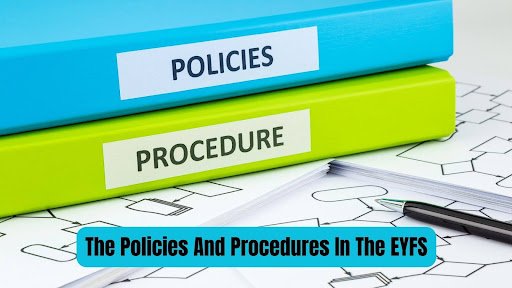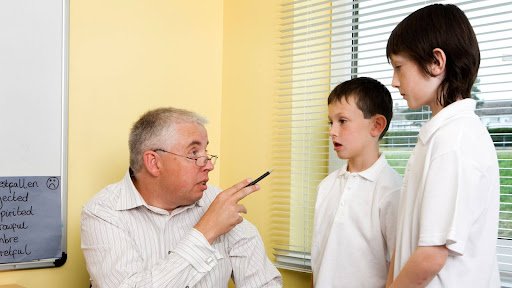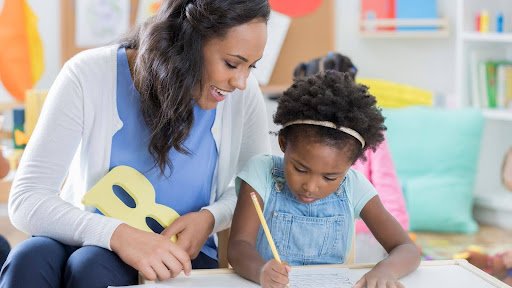The Policies And Procedures In The EYFS
The Early Years Foundation Stage (EYFS) is a framework for children’s learning and development in the UK, which sets the standards for the care and education of children from birth to the age of five.
As part of the EYFS, there are a number of policies and procedures that must be followed by early years practitioners to ensure that children are safe, happy, and making progress in their learning and development.
In the UK, the EYFS is a statutory framework, which means that it is a legal requirement for all early years providers to follow the policies and procedures set out in the framework. This ensures that all children in the UK receive a high quality of care and education in their early years.

Learn the key policies and procedures needed for all childcare providers in this video
(Policies and Procedures article continues after the video)
The EYFS and Ofsted both require all early years providers to appropriate procedures and policies in place, in order to keep children safe.
You can get access, here to a set of the policies and procedures templates to help support you running your business.
When you’re preparing any policy and procedures in childcare, the most important thing to focus on is the type of issues that you’re facing with the procedure. You will want everyone in the early years setting to know how they should deal with this what kind of requirements are there.
Creating your Policies and Procedures
Policies and procedures in early years settings should include multiple arrangements, ranging from
- the supervision of staff and their recruitment,
- administering medicine,
- using phones/cameras,
- record keeping,
- how you respond to allegations/complaints related to your staff,
- risk management,
- how you keep a safe environment,
- how you record/store information.
When you create any early years policies and procedures, it’s very important to maintain a high level of transparency, including a statement of intent and value.
You should try to capture why you created any policies and procedures, what you want to achieve, but also showcase the legislation underpinning the policy. You also want to show who the policy is applying to, and then support it with the right procedures, understanding what each procedure is focused on and then implementing everything properly.
It’s expected that any early years practitioners have appropriate child protection training and they know of any signs of abuse.
Knowing what are policies and procedures in early years childcare and implementing within your own childcare setting is extremely helpful, and it will eliminate many potential challenges that can sometimes arise.
Having a person that works on safeguarding and knows all the organisational policies is very important, since it will help prevent any possible issues and help keep children safe and away from harm or abuse.
Some key Policies and Procedures to create for the EYFS
1. Safeguarding and Child Protection
 The safeguarding and child protection policy is undoubtedly one of the most important policies in the Early Years Foundation Stage (EYFS). This policy outlines the necessary procedures that early years practitioners must follow to ensure that children in their care are safe and protected from harm.
The safeguarding and child protection policy is undoubtedly one of the most important policies in the Early Years Foundation Stage (EYFS). This policy outlines the necessary procedures that early years practitioners must follow to ensure that children in their care are safe and protected from harm.
The primary goal of this policy is to ensure the welfare and safety of all children in early years settings. It provides a framework for identifying, reporting, and responding to concerns about a child’s well-being or safety. This includes procedures for dealing with any allegations of abuse or neglect, as well as measures to prevent potential harm.
The policy requires that all early years providers have a designated safeguarding lead who is responsible for overseeing safeguarding procedures and ensuring that all staff members are trained to follow them. This lead person plays a crucial role in promoting the safety and welfare of children in their care. They are responsible for coordinating safeguarding activities, ensuring that staff are trained and knowledgeable on safeguarding procedures, and maintaining accurate records of safeguarding incidents and concerns.
The safeguarding and child protection policy is an essential component of the EYFS framework. Early years providers are required to have this policy in place and must adhere to it at all times. Failure to do so can result in serious consequences, including loss of registration, legal action, and potential harm to children.
2. Health and Safety Policy
 The health and safety policy is one of the most important policies in the Early Years Foundation Stage (EYFS), as it is designed to ensure that children in early years settings are kept safe and healthy. This policy sets out clear procedures that early years practitioners must follow to provide a safe environment for children to learn and play in.
The health and safety policy is one of the most important policies in the Early Years Foundation Stage (EYFS), as it is designed to ensure that children in early years settings are kept safe and healthy. This policy sets out clear procedures that early years practitioners must follow to provide a safe environment for children to learn and play in.
One of the key aspects of the health and safety policy is the requirement for regular risk assessments. Practitioners must assess the risks in the environment to identify any potential hazards and take steps to mitigate them. This helps to ensure that children are not exposed to any unnecessary risks while in their care.
Another crucial aspect of the health and safety policy is the promotion of good hygiene practices. This includes procedures for handwashing, cleaning, and sterilisation of equipment and toys. Early years providers must ensure that all staff members are trained to follow these procedures to prevent the spread of infections and illnesses.
Food safety is also a significant part of the health and safety policy. Early years providers must ensure that all food served to children is safe and prepared in a hygienic manner. This includes guidelines for food storage, preparation, and serving.
In addition, the health and safety policy requires early years providers to have first aid procedures in place. Staff members must be trained in first aid, and there must be a designated person responsible for administering first aid in the event of an accident or illness.
It is crucial for all early years providers to have a written health and safety policy in place that is regularly reviewed and updated. This ensures that the policy remains relevant and effective in promoting the health and safety of children in early years settings. All staff members must be trained to follow the policy to ensure that it is implemented correctly.
3. Behaviour Management Policy
 The behaviour management policy is a fundamental part of the Early Years Foundation Stage (EYFS) framework, which sets out clear procedures for promoting positive behaviour and managing challenging behaviour in early years settings. Early years practitioners must follow this policy to ensure that children are provided with a safe and positive learning environment.
The behaviour management policy is a fundamental part of the Early Years Foundation Stage (EYFS) framework, which sets out clear procedures for promoting positive behaviour and managing challenging behaviour in early years settings. Early years practitioners must follow this policy to ensure that children are provided with a safe and positive learning environment.
The behaviour management policy includes procedures for setting clear boundaries, promoting positive behaviour, and dealing with incidents of challenging behaviour. These procedures are designed to help early years practitioners to prevent behavioural issues and promote positive behaviour among children. By establishing clear boundaries and expectations, early years practitioners can create a safe and supportive environment where children feel valued and respected.
The policy also provides guidance on how to manage challenging behaviour. This includes strategies for de-escalating situations and preventing incidents from escalating further. Early years practitioners are trained to recognise and respond to challenging behaviour in a positive and constructive manner, rather than using punitive measures that could potentially exacerbate the problem.
All early years providers must have a behaviour management policy that is regularly reviewed and updated to ensure that it remains effective in promoting positive behaviour and managing challenging behaviour. Staff members must be trained to follow the policy and must be equipped with the skills and knowledge needed to manage challenging behaviour effectively.
4. Special Educational Needs and Disabilities (SEND) Policy
 The Special Educational Needs and Disabilities (SEND) policy is an integral part of the Early Years Foundation Stage (EYFS) framework. This policy sets out clear procedures that early years practitioners must follow to ensure that children with special educational needs and disabilities are supported in their learning and development.
The Special Educational Needs and Disabilities (SEND) policy is an integral part of the Early Years Foundation Stage (EYFS) framework. This policy sets out clear procedures that early years practitioners must follow to ensure that children with special educational needs and disabilities are supported in their learning and development.
The SEND policy includes procedures for identifying and assessing children’s needs, planning and implementing appropriate support, and working with external agencies. Early years providers must ensure that staff members are trained to recognise the signs of SEND and are equipped with the knowledge and skills needed to provide effective support.
One of the key aspects of the SEND policy is the requirement for early identification and assessment of children’s needs. This helps to ensure that children with SEND receive the appropriate support they need to thrive. Early years providers must work with parents and external agencies to develop an Individual Education Plan (IEP) that outlines the child’s needs and the support required to meet those needs.
The SEND policy also emphasises the importance of inclusion and equality. Early years providers must ensure that all children, regardless of their needs or disabilities, are fully included in all aspects of early years provision. This includes ensuring that the physical environment is accessible, providing appropriate resources and support, and promoting positive attitudes towards diversity and inclusion.
All early years providers must have a SEND policy that is regularly reviewed and updated to ensure that it remains effective in supporting children with SEND. Staff members must be trained to follow the policy and must work collaboratively with external agencies to provide the necessary support for children with SEND.
5. Partnership with Parents and Carers Policy
 The partnership with parents and carers policy is an essential component of the Early Years Foundation Stage (EYFS) framework. It sets out clear procedures that early years practitioners must follow to involve parents and carers in their child’s learning and development.
The partnership with parents and carers policy is an essential component of the Early Years Foundation Stage (EYFS) framework. It sets out clear procedures that early years practitioners must follow to involve parents and carers in their child’s learning and development.
The partnership with parents and carers policy includes procedures for regular communication, sharing information, and involving parents and carers in decision-making about their child’s care and education. Early years providers must ensure that parents and carers are regularly updated on their child’s progress and are actively involved in their child’s learning journey.
Effective communication between early years practitioners and parents and carers is crucial for promoting children’s well-being and development. Parents and carers have valuable knowledge about their child’s needs and interests, and early years practitioners can use this information to tailor their provision and support children’s individual development.
The partnership with parents and carers policy also emphasises the importance of collaboration and shared decision-making. Early years practitioners must involve parents and carers in key decisions about their child’s care and education, including the development of Individual Education Plans (IEPs) and any necessary referrals to external agencies.
All early years providers must have a partnership with parents and carers policy that is regularly reviewed and updated to ensure that it remains effective in involving parents and carers in their child’s learning and development. Staff members must be trained to follow the policy and to work collaboratively with parents and carers to promote positive outcomes for children.
Conclusion
In conclusion, the EYFS policies and procedures play a crucial role in ensuring that all children in the UK receive a high quality of care and education in their early years. By following these policies and procedures, early years practitioners can help to ensure that children are safe, happy, and making progress in their learning and development.




